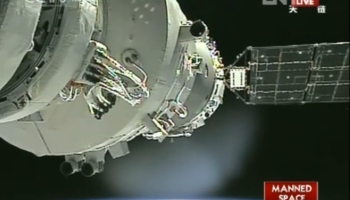https://youtu.be/NlINmuXh8LY
Here are the highlights of the 2017 Budget proposals announced on Friday by Prime Minister Datuk Seri Najib Tun Razak:
Lower corporate tax
* Govt has proposed to reduce the corporate tax for the year of assessment 2017 and 2018
* Reduce tax rate between 1 and 4 percentage points for companies with significant increase in taxable income for year of assessment 2017 and 2018.
* Reduce tax rate from 19% to 18% for SMEs with taxable income up to first RM500,000.
* Extend double taxation promotion on operating expenditure borne by anchor companies for the Vendor Development Programme until 31 December 2020.
Amendment to Bankruptcy Act 1967
* To enable bankrupt individuals to rejoin business activities by amending the Bankruptcy Act for social guarantors and those diagnosed with chronic diseases as well as the elderly.
Infrastructure, railway projects
* New 600km East Coast Rail Line connecting Klang Valley to East Coast, costing RM55b. Conects Port Klang, ITT Gombak, Bentong, Mentakab, Kuantan, Kemaman, Kerteh, Kuala Terengganu, Kota Bharu ends in Tumpat
* RM100m to restore East Coast railway line along Gua Musang – Tumpat that was destroyed during flood.
* To increase trip frequency of ETS for JB-Padang Besar route, RM1.1b allocation to buy more train sets
Boosting investments in small, midcap companies
* Govt-linked investment companies will set aside up to RM3b to fund managers to invest in potential small and midcap firms
* Capital Market Research Institute will set up Capital Market Development Fund with initial funding of RM75m
* Stamp duty on instruments of transfer of real estate worth more than RM1m to rise from 3% to 4% from Jan 1, 2018
Broadband incentives for rakyat
* Malaysian Communications and Multimedia Commission (MCMC) will provide RM1 billion to ensure the coverage and quality of broadband nationwide reaches up to 20 megabytes per second.
* From January 2017, fixed line broadband service providers will offer services at a higher speed for the same price.
* A subscriber of 5 mbs per second package at RM149 will enjoy a package with twice the speed, which is 10 megabytes per second. Within the next two years, for this package, the speed will be doubled with the reduction in prices by 50%.
BR1M, subsidies
* BR1M’s assistance for 2017. Households with monthly income below RM3,000, raised to RM1,200
* For households earning RM3,000-RM4,000, the BR1M allocation increased from RM800 to RM900
* Government will provide nearly RM10b for fuel subsidies including cooking gas, toll charges, public transport
* For the purchase of reading materials, PCs, sports equipment be combined as lifestyle tax relief up to RM2,500 from 2017
Affordable housing for first time buyers
*Govt vacant lands at strategic locations will be given to GLCs and PR1MA to build 30,000 houses. The selling price RM150,000 to RM300,000.
*Govt to build 10,000 houses in urban areas for rental to eligible youths with permanent job, Rental up to 5yrs, below than market rate
* Rakyat-Centric projects will be continued through Private Finance Initiative with allocation of RM10b
Empowering taxi drivers, Uber
* Taxi drivers to get Govt grant of RM5,000 to buy new vehicles, individual taxi permits, RM60m allocation
* For ride-sharing drivers who don't own car, down payment can be made using BR1M, rebate RM4,000 to buy Proton Iriz*
Private retirement schemes
* Effective 2017, the Government proposes to introduce a one-off increase of the existing RM500 incentive to RM1,000 to PRS contributors. Minimum accumulated investment of RM1,000 during the otwo years. For this, an allocation of RM165mil will be provided.
* RM400 million will be allocated, among others for clean air and ecotourism initiatives
Source: The Star
Related:
Budget 2017 Archives - BAJET Malaysia
www.bajet.com.my/category/budget-2017/
Budget 2017: RM30mil for NCR land survey good for landowners, says Masing
Budget lacks measures to revive property slowdown
Shot in the arm for affordable housing
Budget 2017: RM25bil for healthcare programmes
Artistes upbeat over higher tax relief for sponsors
Lifestyle tax relief a boon for lower and middle-income groups
2017 Budget: New corporate tax scheme for SMEs
http://www.thestar.com.my/business/business-news/2016/10/21/2017-budget-new-corporate-tax-scheme-for-smes/











